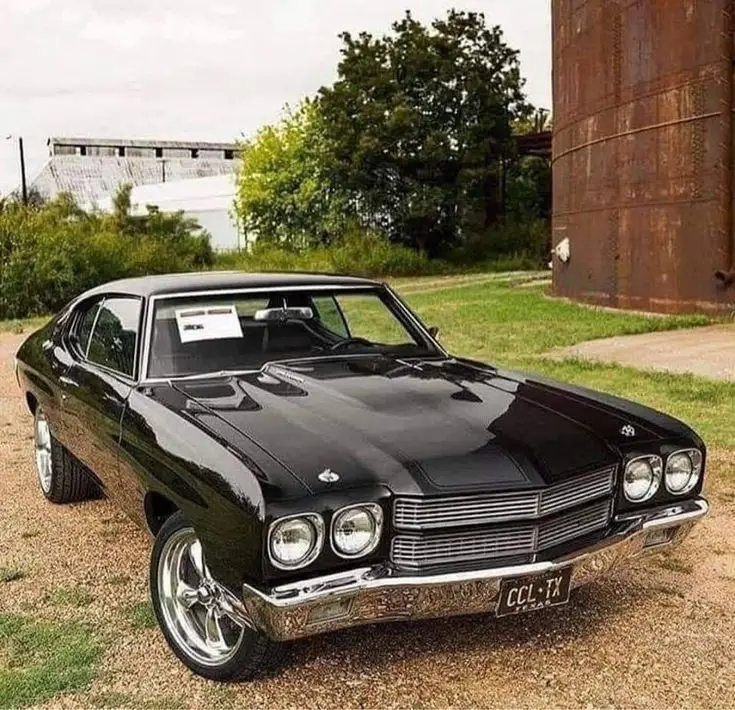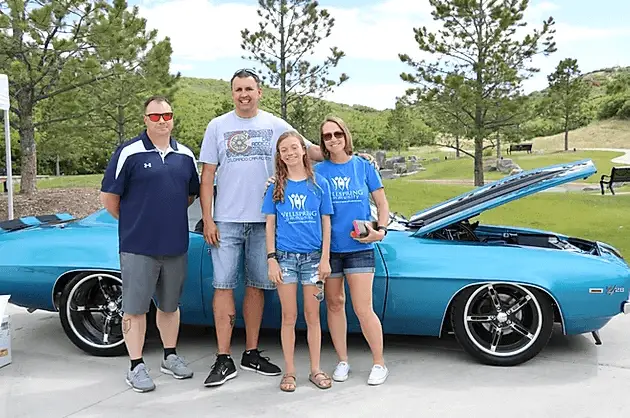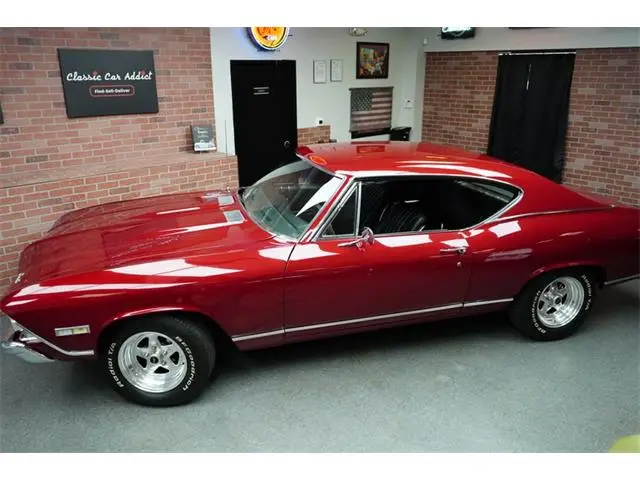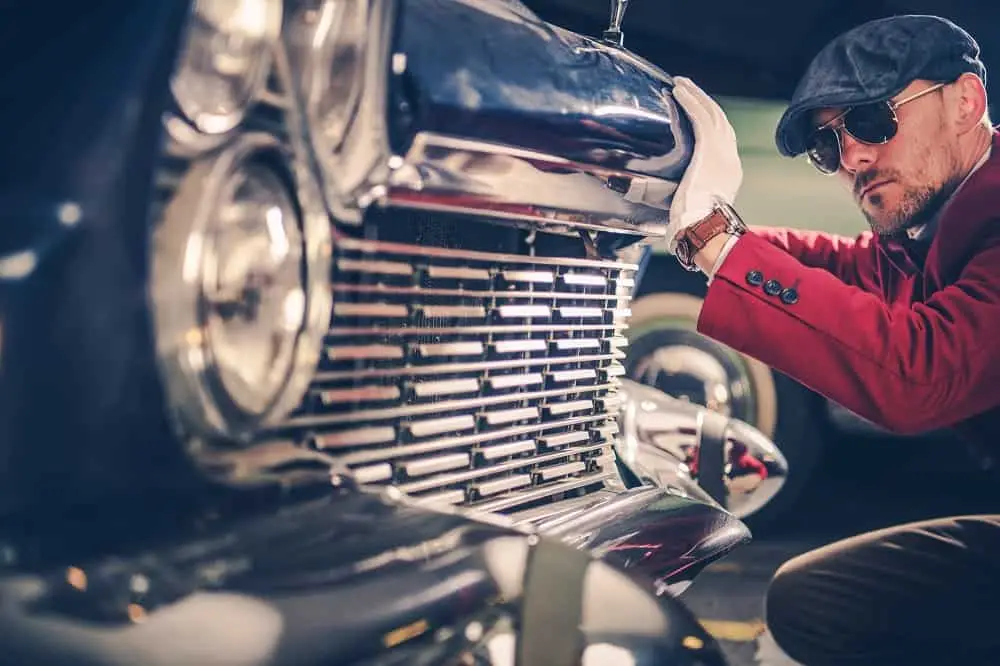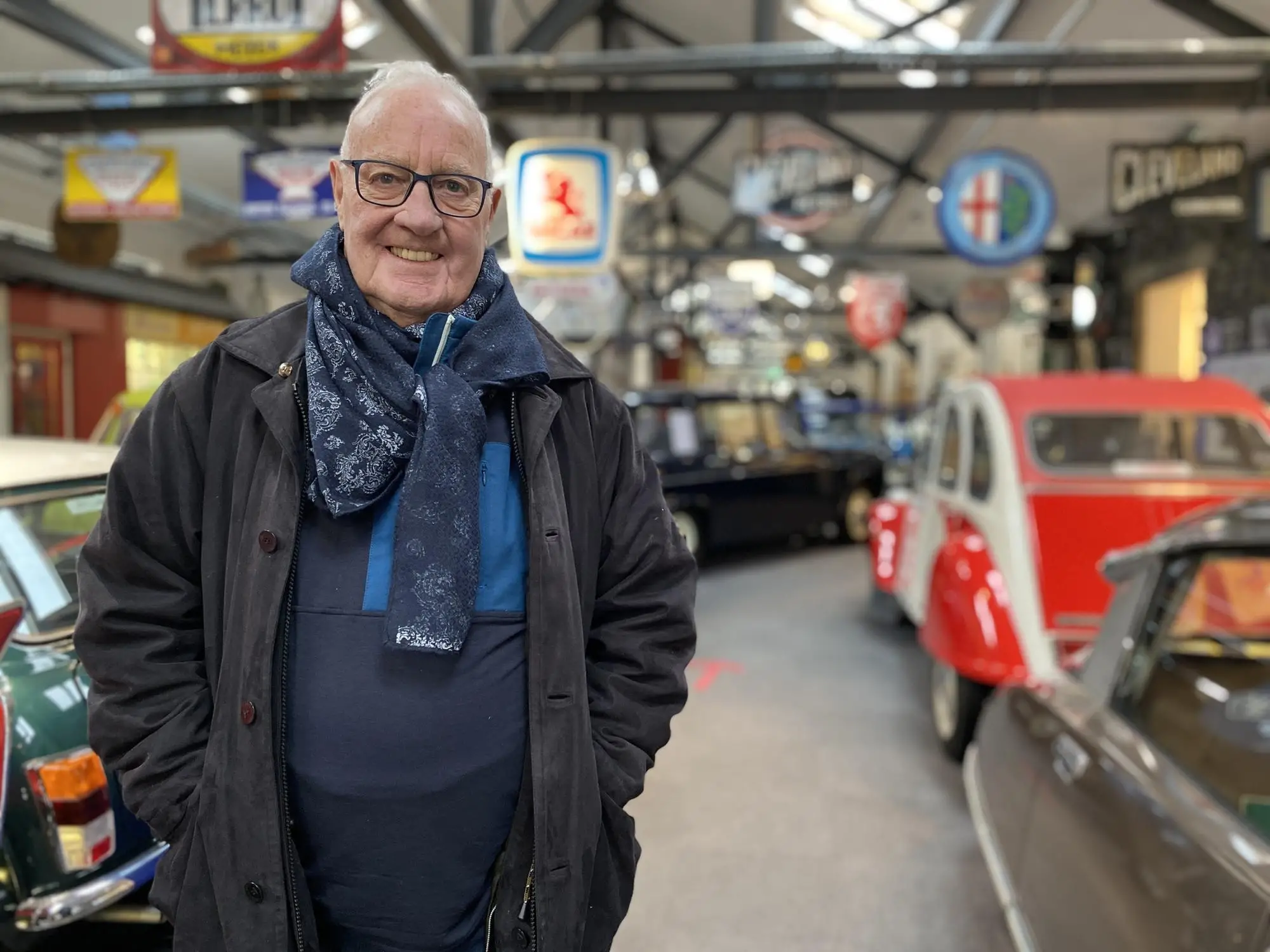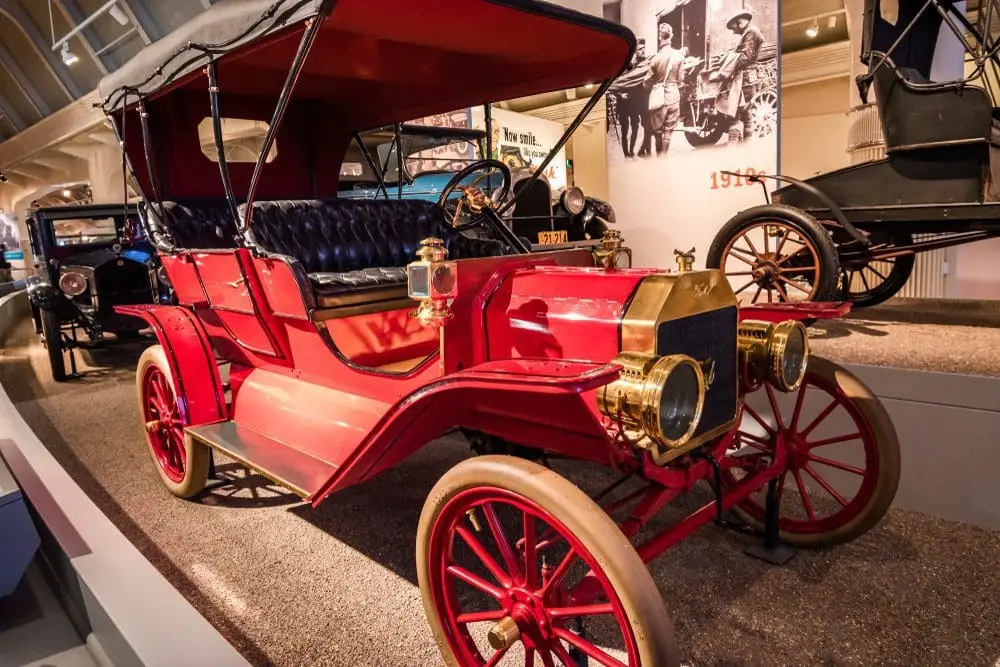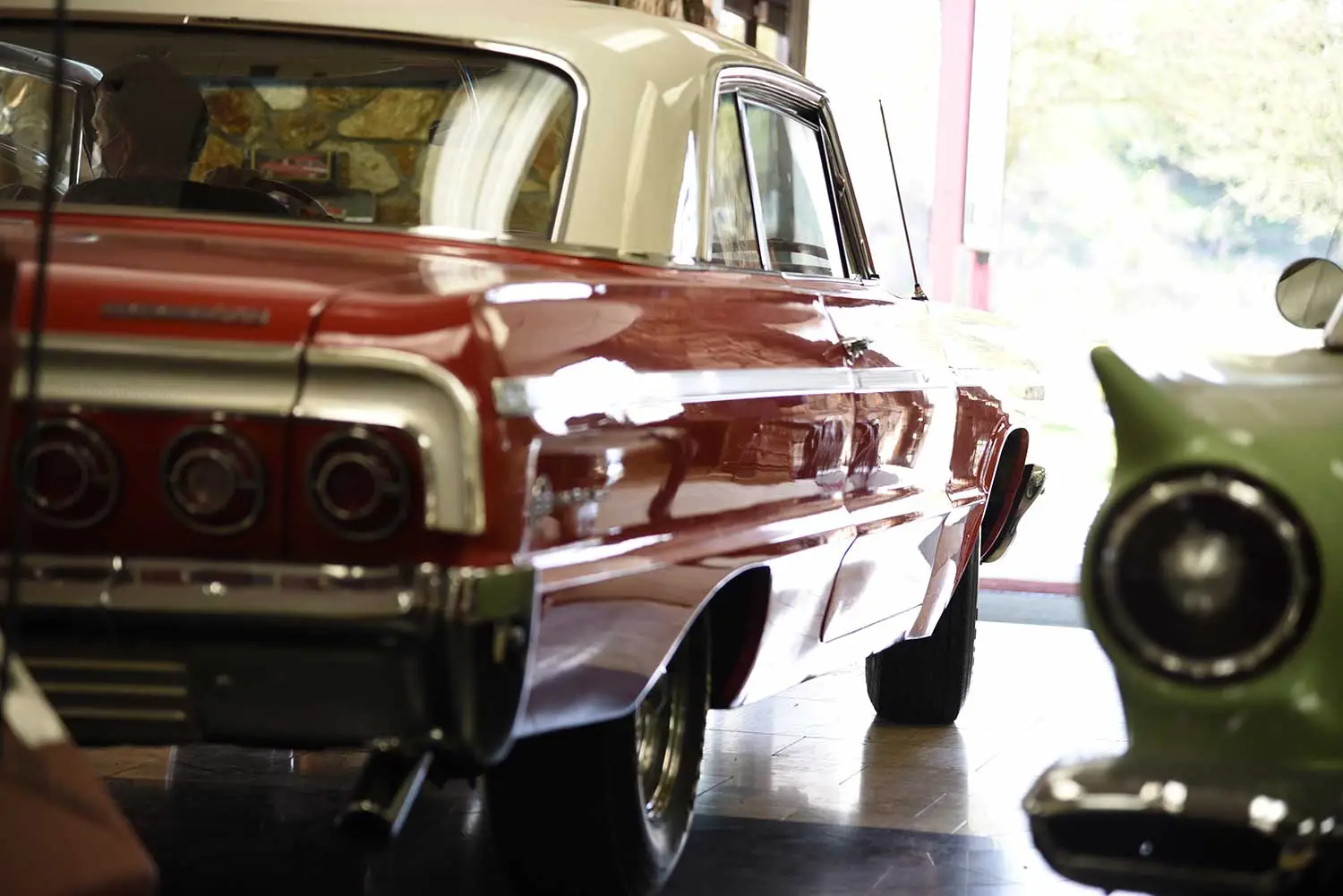The Ultimate Guide for Classic Car Addicts Tips, Tricks, and Must-Haves

Are you constantly drawn to the sleek curves, roaring engines, and timeless beauty of classic cars? Do you find yourself spending hours browsing online for vintage vehicles or attending car shows every chance you get? If so, you may just be a classic car addict.
But don’t worry, you’re not alone. Many people around the world share your love for these iconic automobiles. In this blog post, we will delve into the world of classic car addiction, exploring its history, signs, impact, and even treatment options. So buckle up and get ready for the ride of a lifetime.
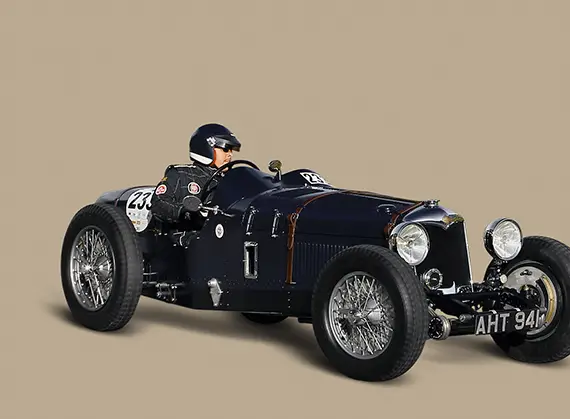
Classic car addiction is a term used to describe the intense and often uncontrollable obsession with collecting, restoring, and driving vintage vehicles. It is a passion that goes beyond mere appreciation for these cars; it becomes a way of life for many enthusiasts. Classic car addicts are willing to devote significant amounts of time, money, and energy towards their love for these automobiles, making it a unique and all-consuming hobby.
What is a Classic Car Addict?
A classic car addict is someone who has an insatiable appetite for vintage vehicles. They are individuals who are passionate about the history, design, and mechanics of classic cars and are always on the lookout for their next purchase or project. For them, owning a classic car is not just about having a means of transportation; it’s a lifestyle and a form of self-expression. These individuals often have an impressive knowledge of different makes, models, and years, and they can spot a rare gem from a mile away.
Signs of Being a Classic Car Addict:
- Constantly searching for classic car listings online or in classifieds.
- Spending hours at auctions, car shows, and flea markets looking for rare finds.
- Devoting a large portion of income to purchasing, maintaining, and restoring classic cars.
- Owning multiple classic cars, sometimes with no intention of selling them.
- Joining online forums and clubs dedicated to classic car enthusiasts.
- Spending weekends in the garage tinkering with their cars or attending car meets.
The History of Classic Cars
The term “classic car” is subjective and can mean different things to different people. In general, it refers to vehicles that are at least 20 years old and hold a certain historical, aesthetic, or cultural significance. However, the passion for these automobiles dates back much further than their age. The first car, the Benz Patent-Motorwagen, was invented in 1886, and since then, the automobile industry has evolved significantly.
In the early 1900s, cars were considered a luxury item and were mainly owned by the wealthy. As technology advanced and prices decreased, more people could afford to own cars, leading to the rise of mass production. This allowed for more creativity and innovation in design, resulting in iconic models like Ford’s Model T and Chevrolet’s Corvette.
In the 1950s and 1960s, cars became more than just a mode of transportation; they were a symbol of freedom, prosperity, and individuality. It was during this time that many of the most well-known classic cars were manufactured, including the Ford Mustang, Chevrolet Camaro, and Porsche 911.
Why People Become Classic Car Addicts
So why do some people become addicted to classic cars while others have little interest in them? There are several factors that contribute to this passion.
Nostalgia:
For many classic car enthusiasts, their love for these vehicles stems from nostalgia. They may have grown up riding in a particular model or have fond memories associated with a specific make or year. Owning a classic car gives them a sense of connection to their past and allows them to relive those memories.
Appreciation for Design and Craftsmanship:
Classic cars are more than just machines; they are works of art. Every detail, from the body lines to the engine, is carefully crafted and meticulously designed. Classic car addicts appreciate the beauty, elegance, and attention to detail that went into creating these vehicles.
Investment Potential:
While some classic car enthusiasts are in it for the love of the cars, others see it as a potential investment opportunity. With the increasing demand for vintage vehicles, many classic cars have appreciated in value over time, making them a lucrative investment for those who know what to look for.
How to Identify a Classic Car Addict
If you suspect that you or someone you know may be a classic car addict, here are a few distinguishing characteristics to look out for:
Passion and Knowledge:
Classic car addicts are not just casual enthusiasts; they are deeply passionate about their hobby. They can talk endlessly about different makes, models, and years and are always eager to learn more about these vehicles.
Obsessive Behavior:
Classic car addiction often involves obsessive behavior. Individuals may spend countless hours researching, attending events, or working on their cars, sometimes neglecting other responsibilities in the process.
Emotional Attachment:
Classic car addicts develop an emotional attachment to their vehicles, much like pet owners do with their furry companions. They often give their cars names, personalize them with unique modifications, and become defensive when others criticize their choices.
The Impact of Classic Car Addiction
While being a classic car addict may seem like a harmless hobby, it can have some significant impacts on an individual’s life.
Financial Strain:
Restoring and maintaining classic cars can be an expensive endeavor. For some, it may lead to financial strain as they devote a significant portion of their income towards their passion.
Time Commitment:
Owning and restoring classic cars takes a considerable amount of time, often leaving little room for other hobbies, activities, or even relationships.
Health Risks:
Working on cars can be physically demanding, and individuals may put themselves at risk of injury or exposure to toxic chemicals. Additionally, the stress and pressure of keeping their cars in top condition may also take a toll on their mental health.
Treatment for Classic Car Addiction
Like any addiction, classic car addiction can have a negative impact on an individual’s life. However, with proper treatment and support, it is possible to manage this passion in a healthy way.
Seek Professional Help:
If you feel that your obsession with classic cars is affecting your daily life, seeking professional help from a therapist or counselor is a good first step. They can help you identify any underlying issues and provide guidance on managing your addiction.
Set Boundaries:
It’s essential to set boundaries for yourself and your hobby. This could include limiting the amount of time or money you spend on your cars or finding a support system to hold you accountable.
Get Involved in Other Activities:
Finding other hobbies or interests can help shift the focus away from classic cars and create a healthier balance in your life. Joining a sports team, taking up a new hobby, or spending more time with loved ones are all great ways to do this.
Famous Classic Car Addicts
Classic car addiction is not limited to ordinary individuals; even celebrities and historical figures have been known to share this passion. Here are a few well-known classic car addicts:
- Jay Leno: The former late-night talk show host is perhaps one of the most famous classic car collectors in the world. His collection includes over 300 vehicles, including rare and unique models.
- Steve McQueen: The “King of Cool” was a well-known actor and race car driver who had a deep love for cars. He owned several classic vehicles, including a Porsche 911S and a Jaguar XKSS.
- Elvis Presley: The King of Rock and Roll was an avid car enthusiast and owned many classic cars, including a 1955 Cadillac Fleetwood and a 1975 Dino Ferrari.
- Ralph Lauren: The fashion designer is not only known for his impeccable taste in clothing but also his impressive collection of classic cars. His garage includes over 70 vehicles, many of which are rare and one-of-a-kind.
Classic car addiction is a unique and all-consuming passion that has captivated people around the world for decades. It’s a hobby that goes beyond mere appreciation for these vehicles; it becomes a way of life for many enthusiasts. However, like any addiction, it can have its negative impacts, and it’s essential to strive for a healthy balance. Whether you’re a seasoned collector or just starting on your journey as a classic car addict, remember to enjoy the ride and always keep a lookout for your next vintage treasure.
Rest And Relaxation On The Road Less Traveled: The Best Off-Road Camping Trailers

